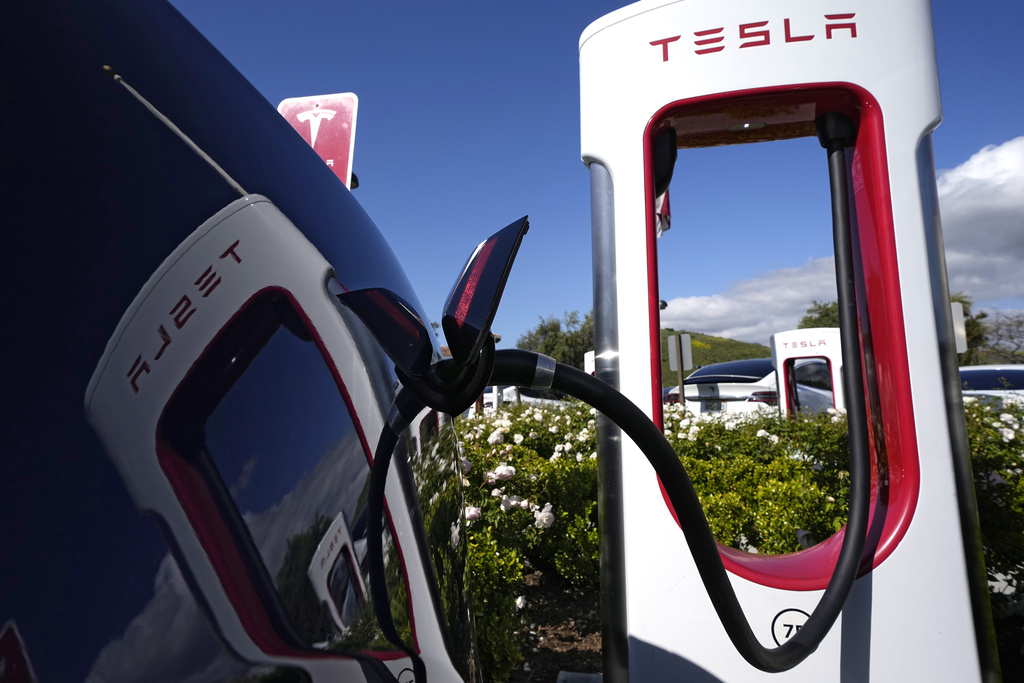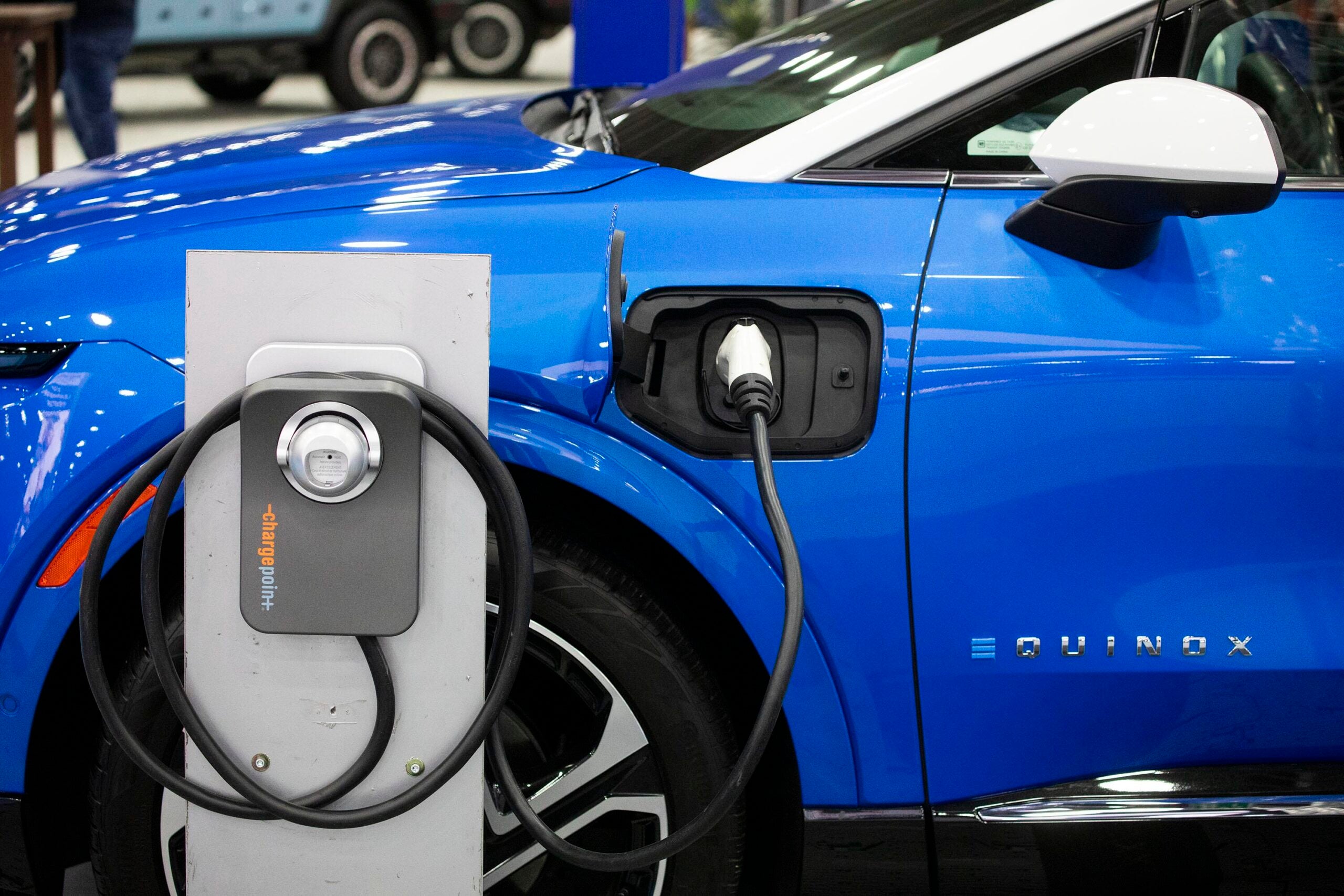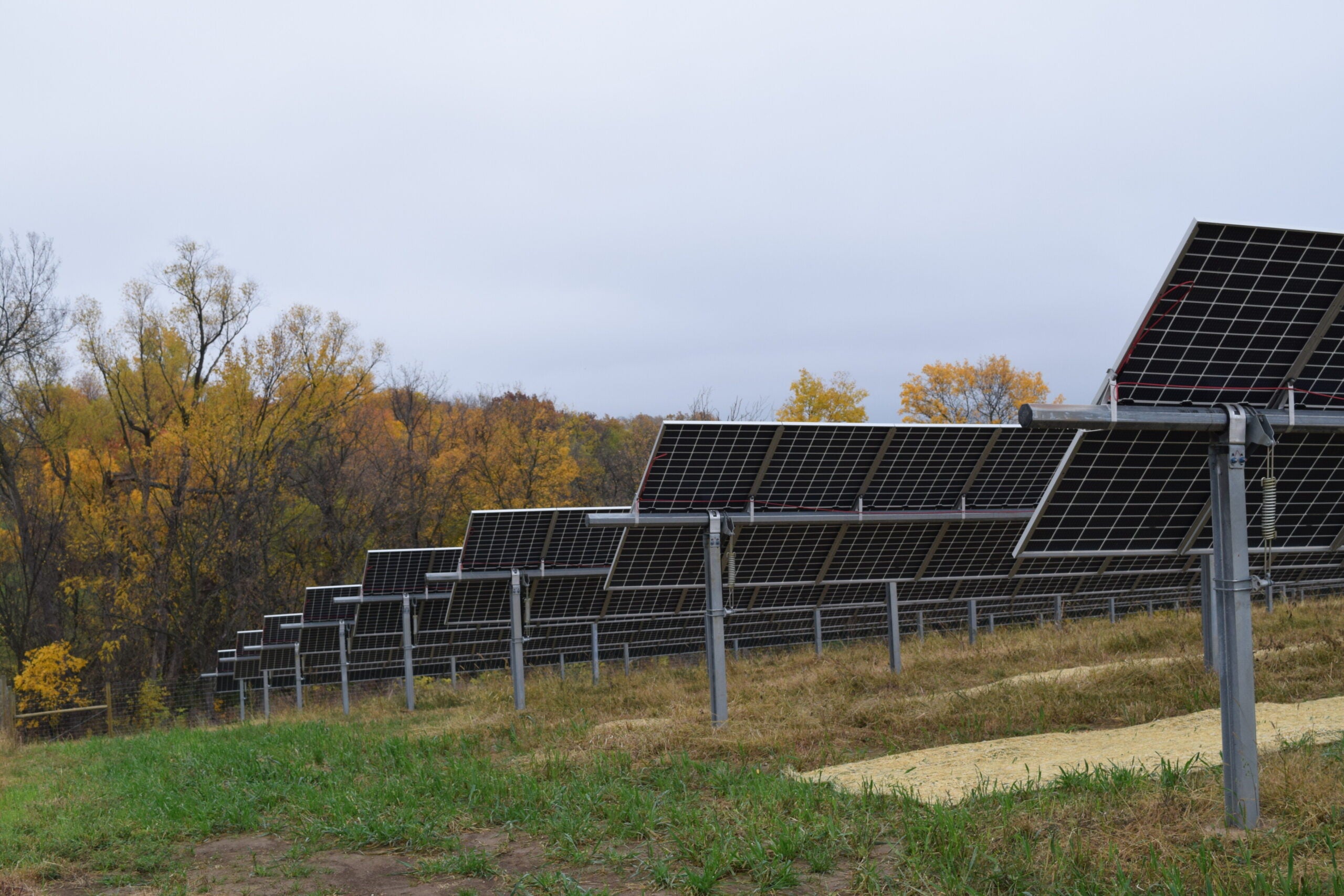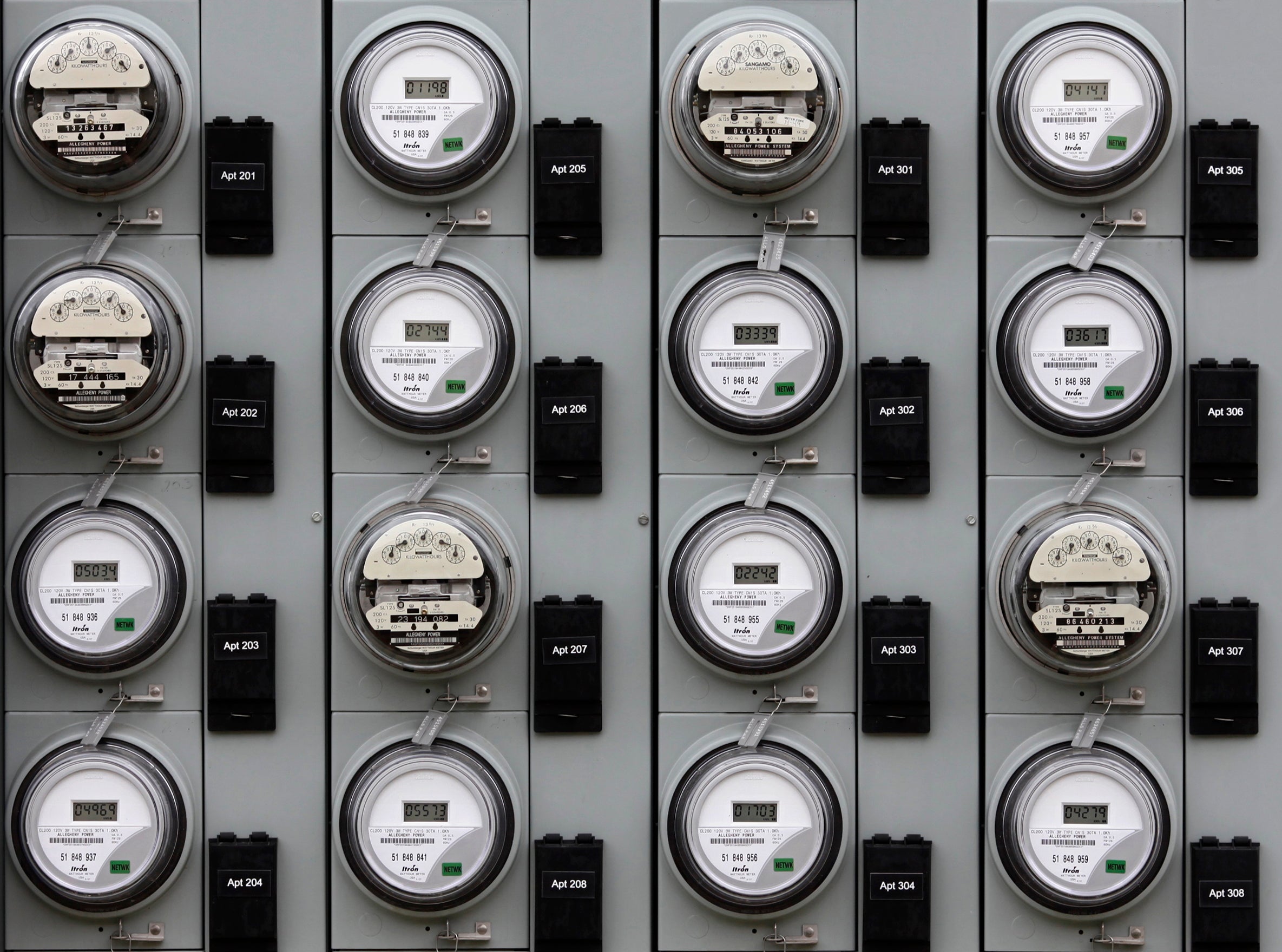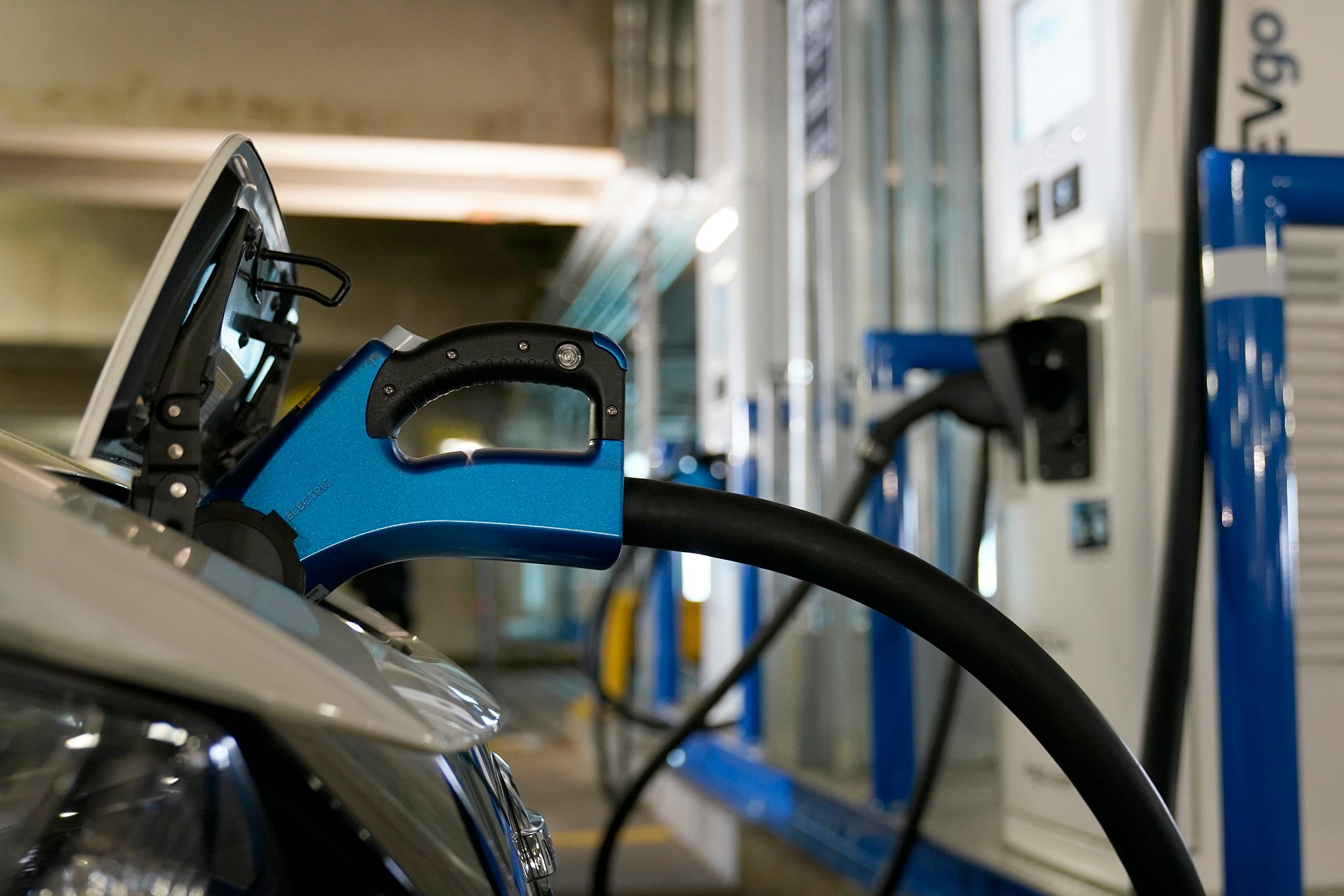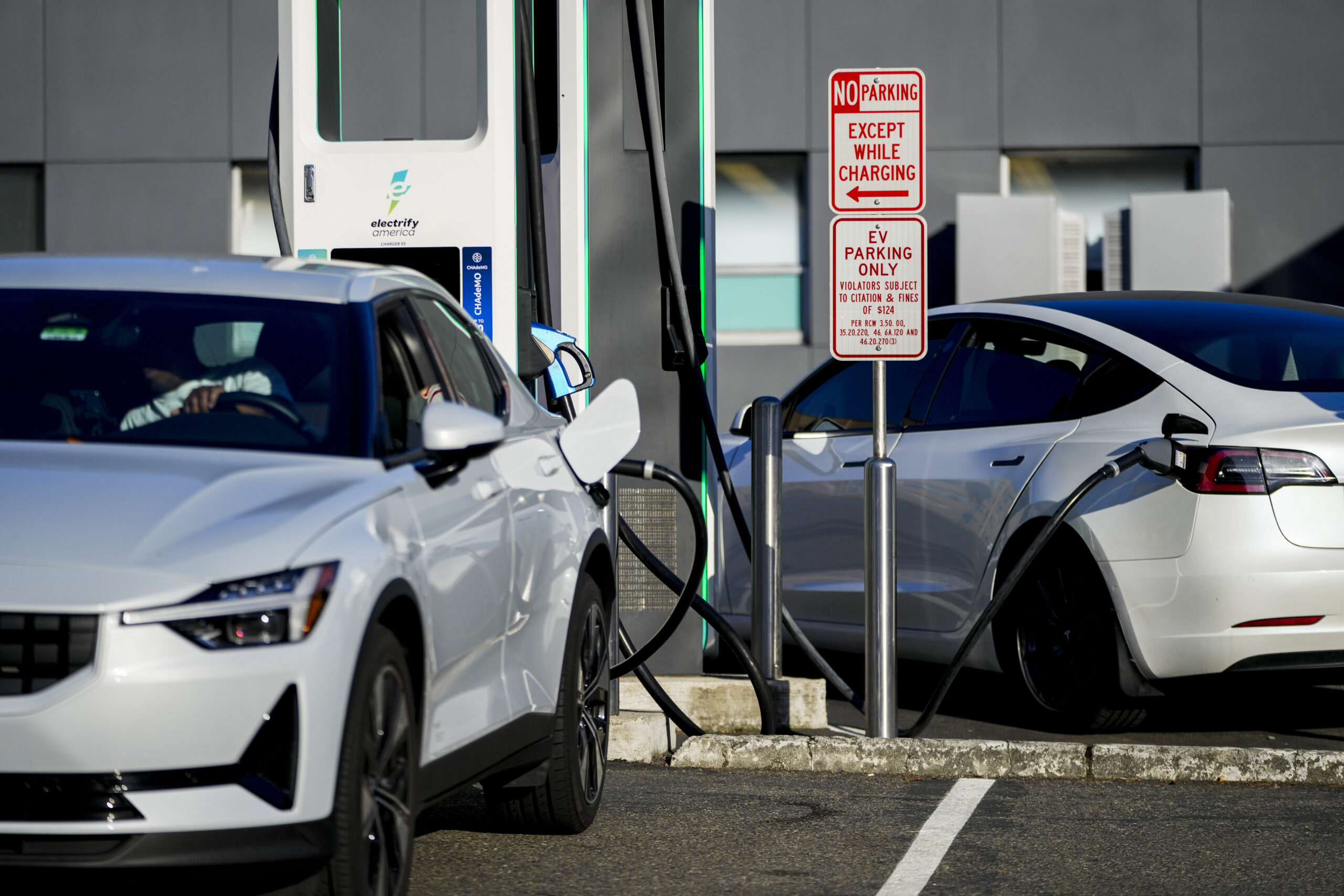A pair of Republican lawmakers are circulating bills that would allow Wisconsin to use federal funds to nearly double the number of publicly available high-speed electric vehicle charging stations around the state.
State Sen. Howard Marklein, R-Spring Green, and Rep. Nancy VanderMeer, R-Tomah, made the announcement Monday. They say the bills would change state law to allow private businesses to own and operate electric vehicle charging stations without being regulated as utilities.
The bills are currently being circulated for co-sponsorship and will be introduced in December. They could see a vote as soon as January 2024.
News with a little more humanity
WPR’s “Wisconsin Today” newsletter keeps you connected to the state you love without feeling overwhelmed. No paywall. No agenda. No corporate filter.
Wisconsin is slated to receive about $78 million from the federal government over the next few years to build its electric vehicle, or EV, charging network. But those stations must charge customers by the amount of electricity used, also known as kilowatt-hour. In Wisconsin, current state law allows only regulated utilities to charge per kilowatt-hour.
One of the bills would exempt EV charging stations from being regulated as utilities if they receive energy from a utility. The other allows the state Department of Transportation to establish and administer a program to provide funding for EV infrastructure projects.
DOT Secretary Craig Thompson spoke about the issue Monday on WPR’s “The Morning Show.” He said current state laws allow charging stations to bill customers by the amount of time a vehicle is plugged into a charger.
“It’s not a very wise way to go about doing it,” he said. “What we need is the legislation that’s being introduced … to not have these entities regulated as (an) electric utility under this, and I’m very hopeful that we’ll be able to get that passed.”
Thompson said the DOT’s plan for the federal dollars identified 62 locations along key corridors in the state for EV charging stations. The federal funds would cover about 80 percent of the cost.
“That $78 million would be enough to deploy these fast chargers in each of those designated areas,” he said.
In a joint statement, Marklein and VanderMeer said their bills will make “wide-scale EV charging possible in Wisconsin” and help the state make federal funds available to private businesses, like local gas stations and convenience stores.
“This bill changes the law to allow for EV charging without this cumbersome regulation,” they said. “The bill also requires retailers to purchase their power from a utility and to collect an excise tax per kilowatt-hour that will be dedicated to the state’s Transportation Fund like the gas tax.”
Marklein said lawmakers behind the bills worked with stakeholder groups, like the League of Wisconsin Municipalities, the Wisconsin Towns Association, Wisconsin Manufacturers & Commerce, Kwik Trip, grocers and utilities.
“We have invested an incredible amount of time in putting this bill together, and we think we’ve got the support of an incredible number of both public and private sector organizations,” Marklein said. “At this point, I’m optimistic that it will pass after the first of the year.”
The lawmakers also said the legislation prevents the state or local government from selling EV charging, but government entities could lease public property to private businesses to own and operate stations or offer free charging stations.
Municipal electric utilities are the exception. They would be treated like all other utilities and could sell charging, the lawmakers said. But municipal electric utilities cannot use taxpayer money to build EV facilities under the proposal.
“The private sector is, we believe, in the best possible position to provide the fast charging units that can charge your vehicle in 30 minutes (or) 35 minutes,” Marklein said.
Marklein added that allowing the state to use federal funds to provide EV charging along key corridors would benefit Wisconsin’s economy because someone traveling through Wisconsin could patronize nearby businesses as they charge their vehicle.
“People that travel from Schaumburg or Chicago to Door County are going to need to maybe stop to charge in Sheboygan,” he said. “It’s important that we have those facilities available for people with EVs and this bill and this funding is a step in the right direction.”
Editor’s note: This story has been corrected to clarify that the state Department of Transportation’s plan would nearly double high-speed charging stations.
Wisconsin Public Radio, © Copyright 2026, Board of Regents of the University of Wisconsin System and Wisconsin Educational Communications Board.

